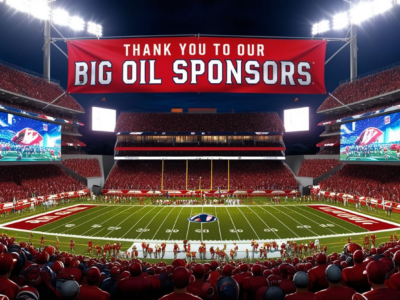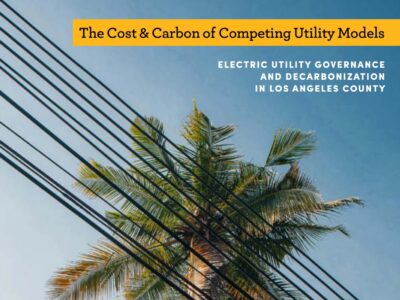Why the GOP Should Embrace Renewable Energy and Energy Efficiency
There’s a lot of discussion these days about how the Republican Party should reposition itself in light of last week’s election results. Support for renewables and energy efficiency would make sense as part of a package of policy adjustments — it would strengthen the Party’s appeal to swing voters, women, and younger voters, with only limited fallout among current GOP supporters.
Here are some key finding from a recent Pew poll:
- 70% of independents support increased funding for alternative energy.
- 53% of Midwesterners and the same percentage of Westerners prioritizes renewables over expanded fossil fuel production.
- 54% of women and 64% of those 18-29 also prioritize renewables.
- Overall, “78% favor requiring better fuel efficiency for cars, trucks and SUVs; 69% favor more federal funding for research on wind, solar and hydrogen technology; and 65% favor spending more on subway, rail and bus systems.”
One of the Party’s challenges is to increase its appeal in swing states in the Midwest without alienating its own base or major donors. Romney was hurt in Iowa by his opposition to the wind energy credit. Support for wind and solar is also appealing in places that see possible manufacturing jobs, and installation as one way to support the ailing construction industry. Poll results show strong support for renewables in the Midwest. The point is not that droves of voters would flock to the GOP in these states over clean energy, but it could be part of a package of policies designed to pick up swing voters.
The political cost of embracing clean energy would be limited. Renewables and energy efficiency aren’t popular with the fossil fuel industry, which is a key part of the Party’s donor support, but they aren’t major threats to profits, especially given the surge in natural gas use. In addition, the oil and coal industries aren’t likely to shift support to the Democrats no matter what. Under Obama, Republican support for renewables has declined sharply, but a solid group of Republican and Republican-leaning voters continue to find renewable energy appealing. (See also this earlier Pew poll) In short, the political price for supporting renewables and efficiency among GOP supporters would be modest.
Thus, the GOP could gain among independents and swing voters with strong support for renewables and efficiency without losing very much in return. Of course, this assumes that the Party decides to shift ground in response to Obama’s victory and the very disappointing Senate outcome. That remains to be seen.
Reader Comments
2 Replies to “Why the GOP Should Embrace Renewable Energy and Energy Efficiency”
Comments are closed.







But these polls don’t account for the increased consumer costs. Polls of this sort routinely overestimate support for their subjects insofar as the respondents are not given any sense of the trade-offs involved (and even when they are, saying you’ll pay more for something is a poor indicator of whether you’re actually willing to do so). Finally, that people say they support something does not mean they will alter their political preferences on this issue. There is little reason to believe any significant percentage of voters will be swayed on this issue, particularly if the consequence of such policies is to increase up-front consumer costs and increase federal spending.
But these polls don’t account for the increased consumer costs. Polls of this sort routinely overestimate support for their subjects insofar as the respondents are not given any sense of the trade-offs involved (and even when they are, saying you’ll pay more for something is a poor indicator of whether you’re actually willing to do so). Finally, that people say they support something does not mean they will alter their political preferences on this issue. There is little reason to believe any significant percentage of voters will be swayed on this issue, particularly if the consequence of such policies is to increase up-front consumer costs and increase federal spending.